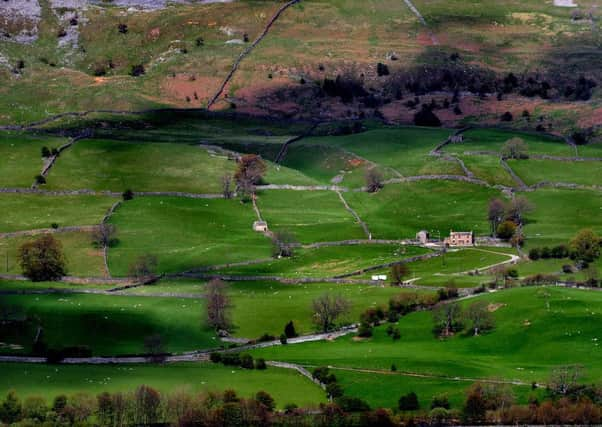What the farming world has told Defra it wants from Brexit


It is now over to the Government to digest the responses from all sections of the industry and other stakeholders in food, farming and the environment before its begins to devise its policies for after Britain leaves the European Union.
Various organisations have had their say but within farming, common themes emerged in the responses from different groups. Concerns arose over enough emphasis being placed on food production as new policy is formulated. Farmers’ delivery of environmental enhancements was a distinguishing theme of the Government’s Health and Harmony consultation paper.
Advertisement
Hide AdAdvertisement
Hide AdA key ask from the National Sheep Association is for greater profitability to be addressed, with Phil Stocker, the NSA’s chief executive, saying: “The fundamental barrier to progress is a lack of core business profitability due to high business costs and comparatively low product prices. This is exacerbated by a culture in the UK of chasing cheaper food prices, and our future trading relationship with the EU will have an impact too.”
Likewise, a lack of reward was a barrier to encouraging young people and new entrants into agriculture, he said.
The NSA also called for capital investment options and incentives for efficiency improvements as part of future farm support, a sheep health scheme to help farmers make on-farm improvements whilst reducing their carbon footprint and a fair percentage-based reduction across all businesses when direct support payments are cut.
Advertisement
Hide AdAdvertisement
Hide AdThe Agricultural Industries Confederation said the Government’s drive for environmental enhancements as part of its new farming policy must be coupled with an equal drive on agricultural production, underpinned by the enabling of new technologies and innovation.
Its submission to Defra called for the link between productivity and positive environmental outcomes to be acknowledged, incentives for balancing production and environmental goals in relation to the individual situations of farms, for education, training and skills to drive greater productivity and improved capacity for research to translate into new marketable innovations.
Tenant Farmers Association chief executive George Dunn said new policy must not amount to “removing the Basic Payment Scheme, reconfiguring Countryside Stewardship and providing a fistful of grants” and that the UK’s “dysfunctional” food supply chain must be better regulated, with an expanded role for the Groceries Code Adjudicator playing a part.
Mr Dunn said: “The ever increasing production standards being demanded of farmers is not matched by an ability to recover the higher costs that producing to those higher standards bring. If we don’t deal with these market failures, consumers will lose out and cannot be protected from imported products produced to inappropriate standards in new trade deals.”
Advertisement
Hide AdAdvertisement
Hide AdThe Game & Wildlife Conservation Trust wants direct farm payments to go but fears current environmental benefits delivered by cross-compliance and ‘greening’ measures will be lost. It wants incentives for increasing soil organic matter, conserving nutrients and reducing their losses, and improving soil structure and water holding capacity.
As reported in The Yorkshire Post this week, in the National Farmers’ Union’s response, president Minette Batters said British farmers and growers must remain “the number one supplier of choice to the UK market”. The NFU wants support payments to stay in the short term, but for “market based tools” to be developed longer term to smooth the impact of market forces on farm incomes.
The Country Land and Business Association (CLA) wants a carefully handled transition process away from direct support payments. Three crucial pre-conditions must be met first, it said; clarity on long-term trade with the EU, a clear plan for investing in greater agricultural productivity and clarity on a long-term replacement system and how it can be introduced.
Environment Secretary Michael Gove said: “Leaving the EU gives us the opportunity to improve the support we give to Britain’s farmers. We can make farming more productive, improve the quality of the food we eat and enhance our natural environment.
Advertisement
Hide AdAdvertisement
Hide Ad“We’ll reflect on the many thoughtful ideas put forward in response to our consultation and bring forward our plans for legislation later this year.”
FARMER FEEDBACK
There was a sense of concern from some quarters of the industry about the volume of responses to the Government’s consultation and how strongly those responses may represent core farming voices.
North Yorkshire farmer James Hopwood, chairman of the Future Farmers of Yorkshire group, said: “There may have been 44,000 responses to Defra’s consultation but given there are around 210,000 agricultural holdings in England and 450,000 people involved in agriculture in this country, I do hope the discussion points raised in the responses have a degree of balance.”